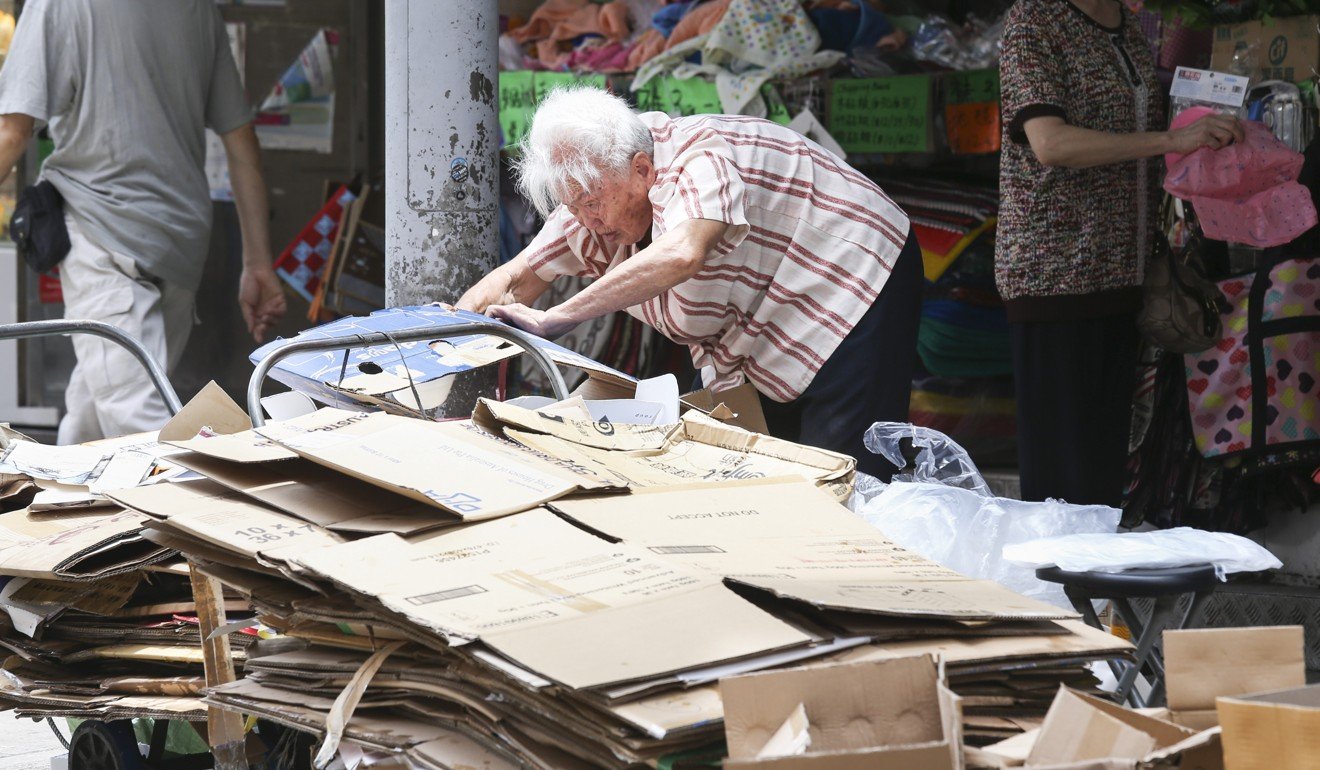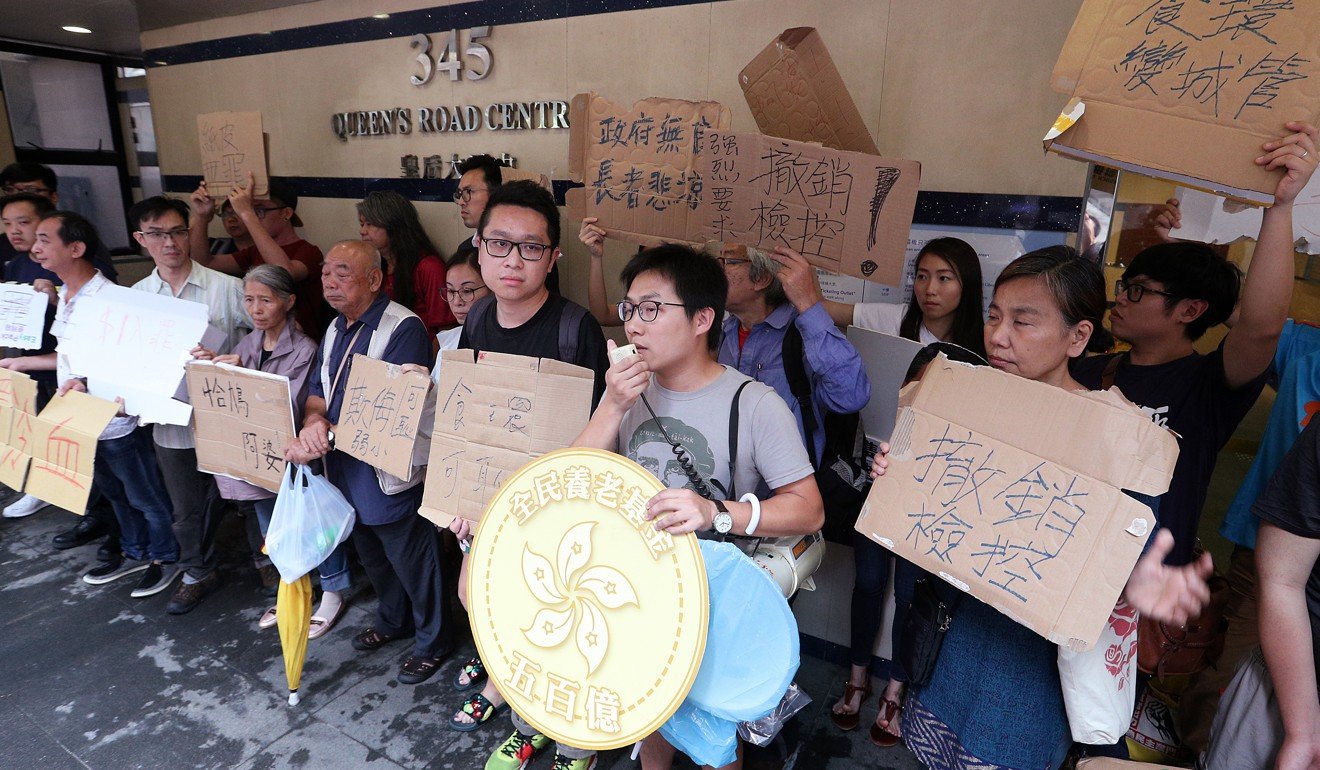
Call to recognise plight of Hong Kong’s ‘cardboard grannies’, who have no homes, savings or family
Recent case of elderly woman arrested over unlicensed selling has shed light on a group that has slipped through the cracks in society
Sister Wong, a cardboard seller in Hong Kong, is 65 years old, with no home, savings, or support from her two adult children. Besides a pension of about HK$3,000, the former civil servant earns less than HK$1,000 every month from reselling cardboard, hovering around the city’s poverty line of HK$3,800 a month.
Wong is among an estimated group of 5,000 “cardboard grannies”, who collect and sell waste boxes in the city, a large proportion of them based in Sham Shui Po, one of the poorest districts in Hong Kong.
Under existing laws, the Food and Environmental Hygiene Department may prosecute Wong and her peers for blocking public streets, or hawking without a licence.
The case brought to light a social issue that appears to be widespread. Another elderly woman from Sham Shui Po, surnamed Fok, 67, was once brought to court and fined HK$400, or the amount she could expect to earn selling 800kg of cardboard.
Social workers and academics have suggested integrating cardboard sellers with the recycling industry so that they can have a normal job earning proper wages and, more than that, their dignity.

There have also been calls for the government to actively promote employment for the elderly.
As for Wong, before she sold cardboard, she had tried applying for a job at McDonald’s in Sheung Shui but the fast food chain’s manager hired a young girl instead. Wong’s curved spine and weak heart prevented her from taking on labour-intensive work such as washing dishes or toilets.
“I can at least earn one meal a day with my own hands,” Wong, who refused to apply for social security, said.
According to Ng Wai-tung from human rights advocacy group Society for Community Organisation and Tang Wing-him, ministry officer from the School of Poverty Caring, “cardboard grannies” are part of a group of elderly people who fall through the cracks of an inadequate care system, including an economy reluctant to employ senior citizens amid rising costs of living.
And it isn’t always about money.

Dr Vivian Lou Weiqun, director of the Sau Po Centre on Ageing at the University of Hong Kong, said: “I personally support universal retirement protection but ‘cardboard grannies’ will probably remain, because 20 to 30 per cent of the people I studied weren’t doing this purely for money.”
Lou’s study of 96 elderly cardboard sellers, published in 2007, is still the largest of its kind in Hong Kong. She is also a member of the Elderly Commission, a government advisory body.
“Retirees need to feel useful and socially engaged,” Tang said, urging the government and society to look into the well-being of such elderly people, and what he sees as the unjustified prosecutions they face.
“Cardboard collecting and reselling is not considered an official job, which means they have little protection, no labour unions, and no one caring about their occupational safety,” Lou said.
She called for legislative efforts to eliminate discrimination and establish multiple sources of income for the elderly in such situations.
Lou said there were currently no comprehensive policies for elderly re-employment or integrating cardboard sellers into the recycling industry.
“Around the globe, senior citizens are encouraged to start their own businesses, mentor young people and learn new skills. All of these entail platforms and education with official support,” Lou said.
“Flexible working arrangements should also be developed for them.”

